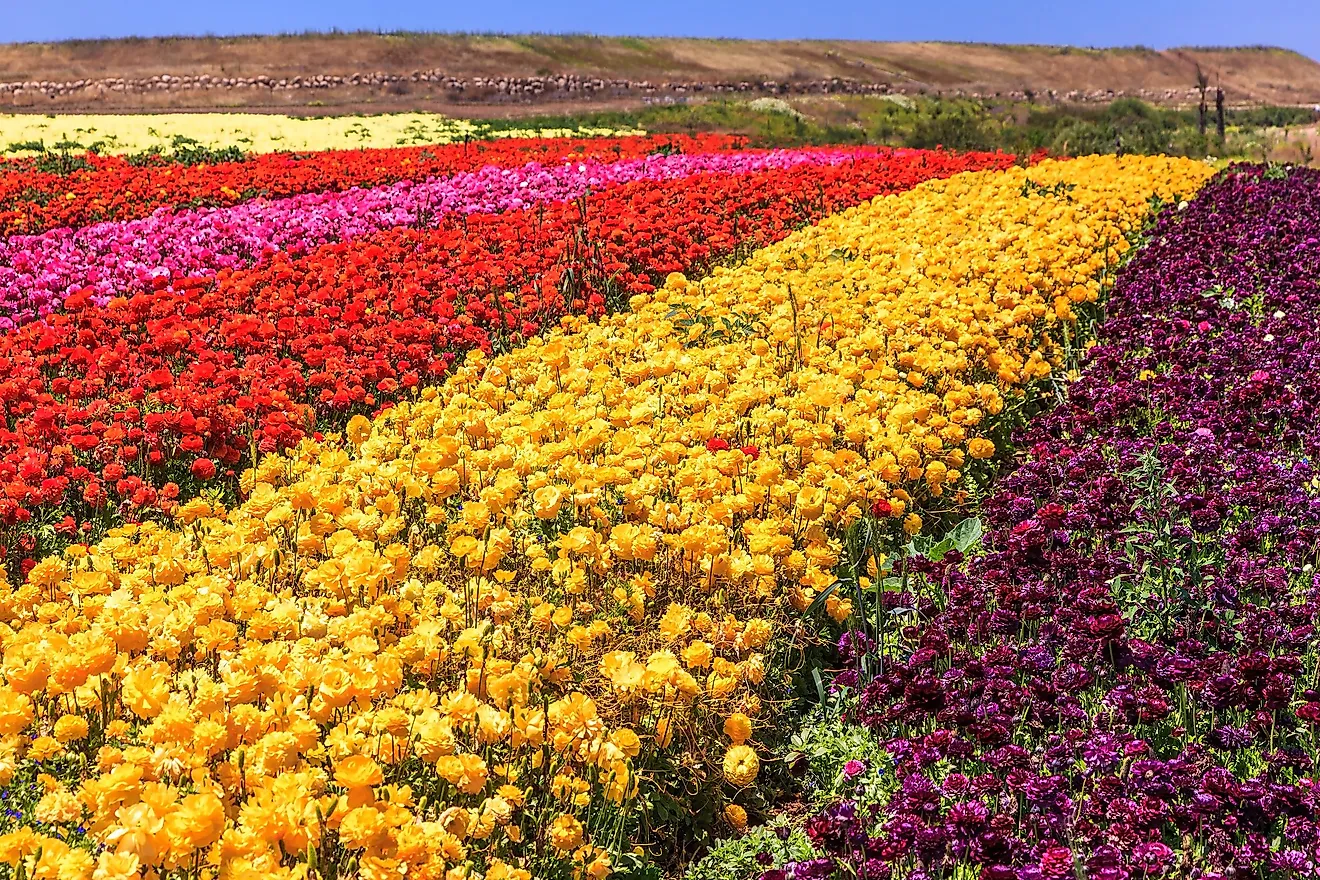What Are The Major Natural Resources Of Israel?

Israel is a Middle Eastern nation that spans an area of roughly 8,522 square miles making it the 150th largest nation in the world. Several international organizations such as the World Bank and the International Monetary Fund consider Israel to be an exceptionally developed nation. Due to the economic prosperity within the country, the residents enjoy a remarkably high standard of living. In 2017, Israel's gross domestic product was roughly $350.9 billion which was a significant rise from the 2016 gross domestic product of $317.7 billion. Israel's economic prosperity is mainly a result of ambitious economic policies and proper utilization of natural resources. Some of the country's most critical natural resources include arable land, natural gas, and minerals among others.
Natural Resources of Israel
Arable Land
One of Israel's most critical natural resources is arable land. In the past, Israel had limited agricultural potential due to its geographical location and the climate. Data from the Israeli government indicated that only 20% of Israel's total land area is naturally suitable to support agriculture. However, due to the development of agricultural technologies, the Israeli agricultural sector has grown significantly. Due to the developments in the agricultural sector, Israel attained a food security index of roughly 95%. Agriculture is a significant contributor to the Israeli gross domestic product as in 2017 the sector's contribution was approximately 2.3%. Approximately 2.6% of Israel's total workforce was either directly or indirectly involved in the agricultural industry. Some of the main crops grown by the Israeli people include wheat and mangoes.
Grains
Some of Israel's most essential grains are wheat, corn, and sorghum. The grains are a vital part of Israel's food security. Data indicates that approximately 830 square miles of land in Israel is used to grow these grains. Although Israel grows vast quantities of grain crops, the nation imports a huge amount of grain to satisfy the local demand. Approximately 80% of the grain consumed in Israel is imported from other nations.
Fruits
One of Israel's most important natural resources is the fruits grown within the country. Some of the most important fruits grown in Israel include grapefruits, apples, bananas, and avocados. Citrus fruits are some of the most important fruits in Israel since the nation is one of the leading producers. Data indicates that Israel earns more money from citrus exports than any other agricultural product. Israeli scientists have contributed significantly to the development of a number fruits, primarily tomatoes. During the 1970s, Nachum Kedar and Haim Rabinowitch contributed significantly to developing a new strain of tomato. Their tomato breed was unique because if it were grown in an ordinary climate, it would ripen slower than an ordinary tomato. Their development catalyzed the development and improvement of agriculture in Israel.
Flowers
Flowers are some of the most important agricultural resources in Israel as they earn the nation significant sums of foreign exchange. In 2000, the value of Israel's flower export was estimated to be $50 million. There are several types of flowers grown in Israel with some of the most common being roses and Chamelaucium. Due to Israel's unique climate, it can supply European nations with flowers even during the winter months.
Fish
Fish is one of the most important natural resources in Israel. Due to its location, Israel can access a wide array of fish from several sources such as the Sea of Galilee and the Mediterranean Sea. In the Mediterranean Sea, Israeli fishers can obtain a wide variety of fish species such as the sleeping sketches, the memorized string, and the Aramtan blue. According to the Ministry of Agriculture, which in Israel is in charge of fishing, Israeli fishers in the Mediterranean Sea obtain roughly 3,500 tons of fish every year. In the Sea of Galilee, the Israeli fishermen obtain some species such as Galil Amnon, Longhead Barbel and the Large-scale Barbel. In the Sea of Galilee, the Israeli fishermen obtain roughly 100 tons of mullet as well as 70 tons of silver carps. Israeli fishermen also fish in the Gulf of Aqaba where they obtain mackerel, mullets, and jacks. In the past Israeli fishermen also fished in the Hula Lake but in the 1950s, the government decided to drain it of all the water within it to combat malaria. Before it was drained, Hula Lake was home to a variety of species such as catfish and tilapia.
Natural Gas
In Israel, natural gas is one of the most important natural resources as it earns the government a lot of revenue and contributes significantly to the gross domestic product. One of the first gas fields discovered in Israel was situated close to the city of Ashkelon. Commercial use of the field began in 2004, and by 2014 the reserves at the field were almost entirely used up. The discovery of the Tamar gas fields in 2009 was a significant boost for Israel's gas reserves as it had gas reserves of roughly 7.1 trillion cubic feet. An American company, Noble Energy, was responsible for the discovery of the field and at the time it was the largest field they had ever discovered. In 2010, the company estimated that it would take approximately $3 billion to develop the field. Israel has recently begun exporting natural gas primarily to Jordan.
Beautiful Scenery
Israel's beautiful scenery is one of its most important natural resources. The beautiful scenery in Israel attracts a large number of visitors from various nations such as the United States, Poland, Russia, and China. Some hiking trails were developed in Israel to allow the tourists to see as much of the country's beautiful scenery as possible. Some of Israel's most popular hiking trails include the Israel National Trail, the Jesus Trail, the Sea to Sea Trail and the Valley of Springs Trail. The Israeli government has invested heavily in security to ensure the safety of visitors to the country.
The Israeli Economy
Major financial institutions such as the World Bank and the International Monetary Fund expect Israel's economy to continue growing. The growth is due to the ambitious policies that the government has put in place as well as the improvement in various fields.











